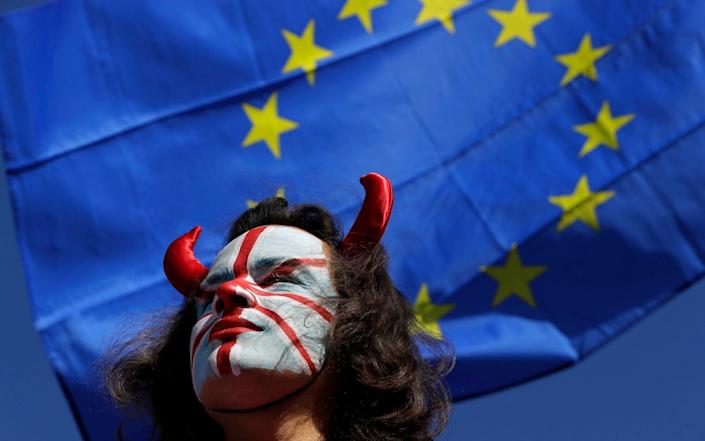
Few issues have divided Britain as much as Brexit, with the country still polarised nearly six years on from the referendum.
But now, there may be a light at the end of the Eurotunnel.
A team from the Karolinska Institute in Sweden has shown that a simple 10-minute guided meditation can help smooth the waters between Remoaners and the Brexiteers, lessening polarisation by around 12.5 per cent and raising hopes of an entente-cordiale.
The befriending meditation – a version of the loving-kindness practices often adopted by yogis – encourages listeners to ditch their animosity and instead focus on happiness for themselves, friends and family and also their enemies.
When it was tested on a group of 501 Remainers and 433 Leavers, it was found to lower polarisation scores from 33.43 points to 29.26 – suggesting that entrenched hostilities had finally started to loosen.
Meditation improve commonality between opponents
Dr Otto Simonsson, the lead researcher, said the results suggested that meditation could help boost perceived commonality between opposing political groups, and could be rolled out in public campaigns to help lessen the Brexit divide.
“Meditation is spreading quite organically and very rapidly across society, especially through the use of meditation apps,” he told The Telegraph.
“These types of interventions have already been introduced in the UK Parliament, but they could perhaps also be used to cultivate positive intergroup feelings in other settings such as the workplace.”
The research was published in the journal PLOS One.
Similar studies have shown that befriending meditations have helped reduce tensions between Democrats and Republicans in the US.
Previous studies have shown that the Brexit vote in 2016 deepened existing divisions over issues including national identity, globalisation and multiculturalism, leading to a silo mentality and a general distrust of those on the opposing side.
The close 52-48 per cent split, also highlighted that the country was fractured down the middle, with many people falling out with family and friends over the result and its implications.
A recent British Social Attitudes Survey found that nine in 10 voters would vote the same way again. Research has shown that people now feel a stronger emotional attachment to their Brexit stance than to their political party affiliation.




